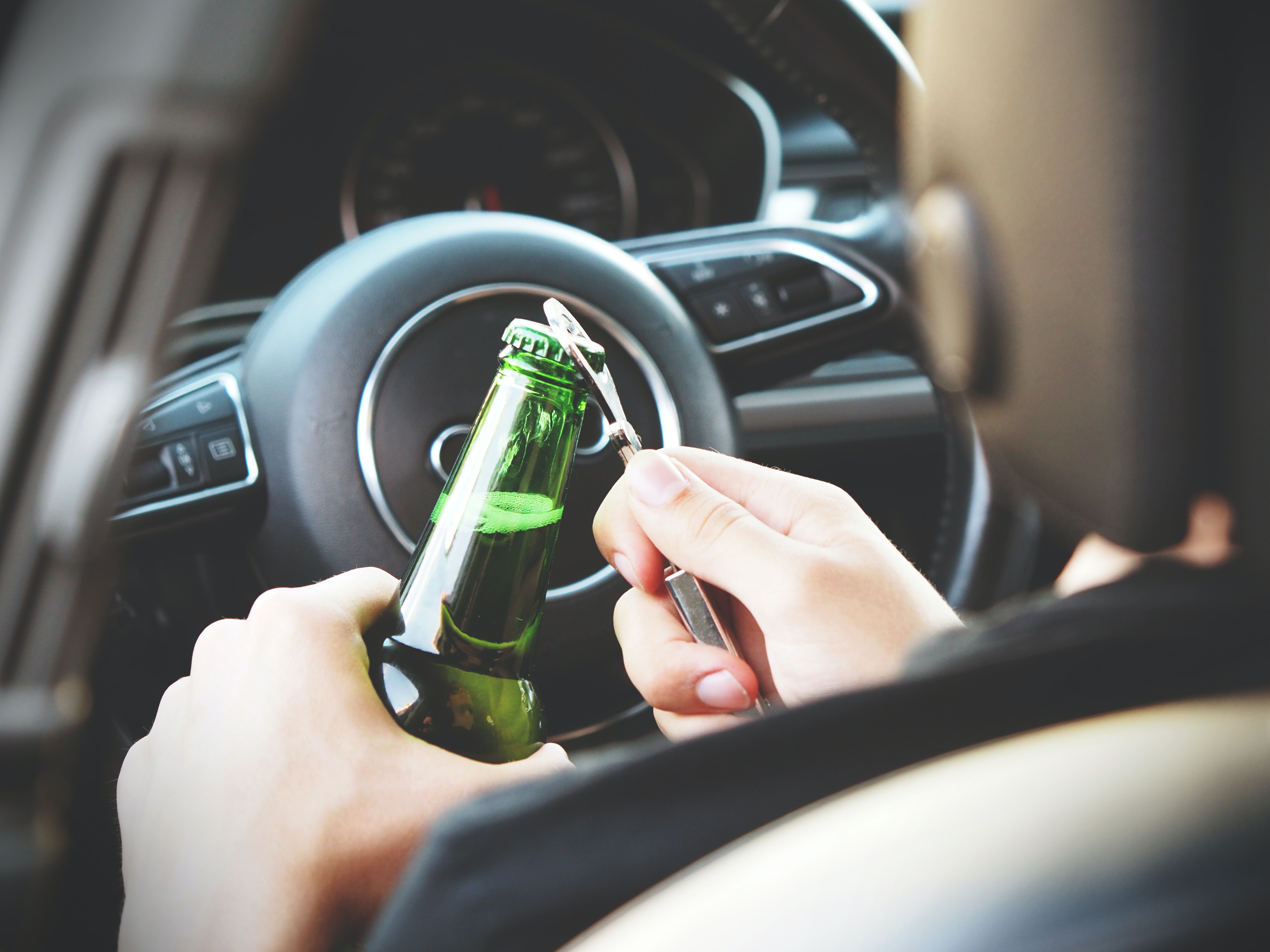A DWI is a more serious offense with harsher penalties, including potential jail time, substantial fines, and prolonged license suspensions. Open container violations incur comparatively lighter fines.
In the state of New Jersey, both Driving While Intoxicated (DWI) and open container violations involve the unlawful use of alcohol with vehicle operation, but they differ significantly in terms of definition, legal implications, and penalties. Individuals who have been charged with these offenses can often believe them to be part of the same offense, when in reality they are two distinct charges that a person could face depending on the circumstances of their case. Regardless of the type of charge you are facing, whether it be DWI, open container, or both, it is always best to speak with an experienced DWI attorney near you about how to best proceed.
Driving While Intoxicated (DWI)
A DWI charge is issued when an individual operates a motor vehicle while under the influence of alcohol or drugs. In New Jersey, a driver is considered legally intoxicated if their Blood Alcohol Concentration (BAC) is 0.08% or higher. However, drivers can still be charged with DWI even if their BAC is below this threshold if they are driving in an impaired manner.
If you are found guilty of a DWI in New Jersey, you could be looking at serious penalties that will escalate with each subsequent offense. They are as follows:
First DWI Offense in NJ:
- Fines ranging from $250 to $400.
- Imprisonment for up to 30 days.
- License suspension for three months.
- Mandatory participation in the Intoxicated Driver Resource Center (IDRC) program.
Second DWI Offense in NJ:
- Fines between $500 and $1,000.
- Imprisonment ranging from 48 hours to 90 days.
- License suspension for two years.
- Community service for 30 days.
Third or Subsequent DWI Offense in NJ:
- Fines of $1,000.
- Imprisonment for 180 days.
- License suspension for ten years.
These penalties may also include surcharges, ignition interlock device requirements, and increased insurance premiums.
Open Container Violations in New Jersey

The open container law in NJ prohibits the possession of any open or unsealed alcoholic beverage container in the passenger area of a motor vehicle located on a public highway or its right-of-way. This applies to both drivers and passengers. There are some exceptions for passengers in certain vehicles, such as authorized limousines and buses, and for containers stored in areas of the vehicle not readily accessible to occupants, like the trunk.
The penalties for violating the open container laws in New Jersey are not as severe as DWI penalties, however they are still worth being aware of and include:
First Open Container Offense in NJ:
- A fine of $200.
Second or Subsequent Open Container Offense in NJ:
- A fine of $250 or 10 days of community service.
In the state of NJ, both DWI and open container violations are considered traffic infractions and do not result in a criminal record. However, they can appear on one’s driving record and may lead to increased insurance rates.
The Key Differences Between DWI Charges and Open Container Charges
A DWI is a more serious offense with harsher penalties, including potential jail time, substantial fines, and prolonged license suspensions. Open container violations incur comparatively lighter fines. DWI charges also require evidence of impaired driving ability, while open container violations are based solely on the presence of an open alcoholic beverage container in the vehicle, regardless of consumption. If an individual is found to be operating a vehicle while impaired and has an open container of alcohol within reaching distance in the vehicle, they could be looking at being charged with both offenses. Charges related to alcohol use and vehicles are always serious because of the potential danger to the public that these types of charges pose. Either offense can negatively impact an individual as they will appear on a person’s driving record. Contact a driving infraction lawyer as soon as possible when facing either of these charges for legal advice and to protect your future.


Join the conversation!